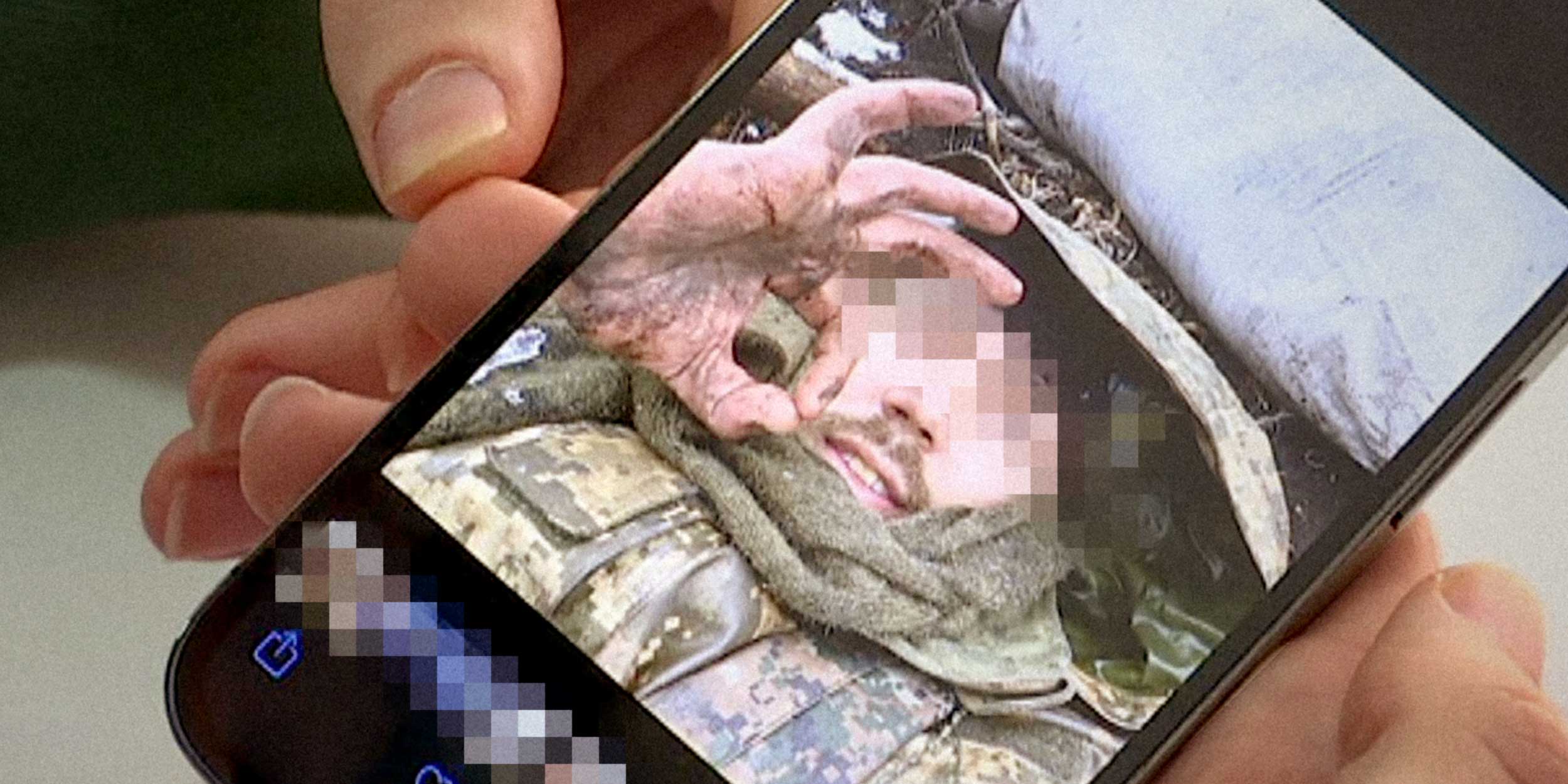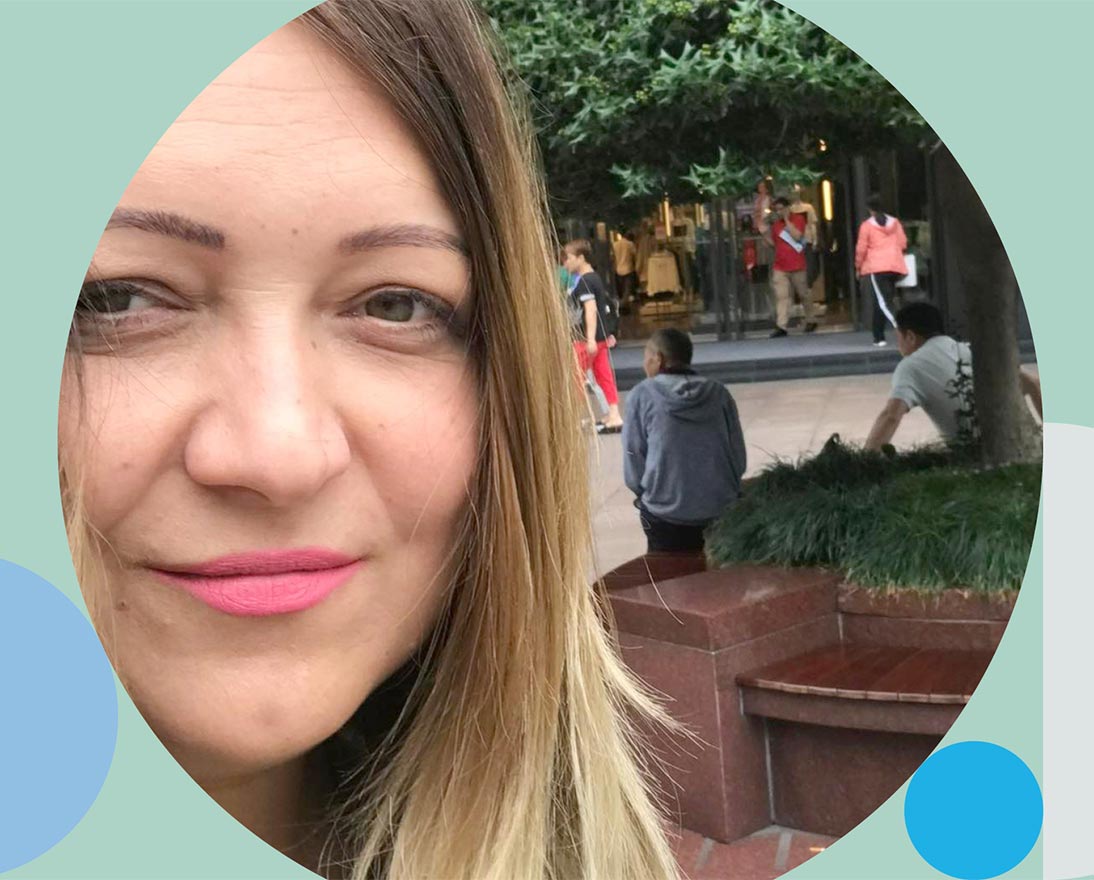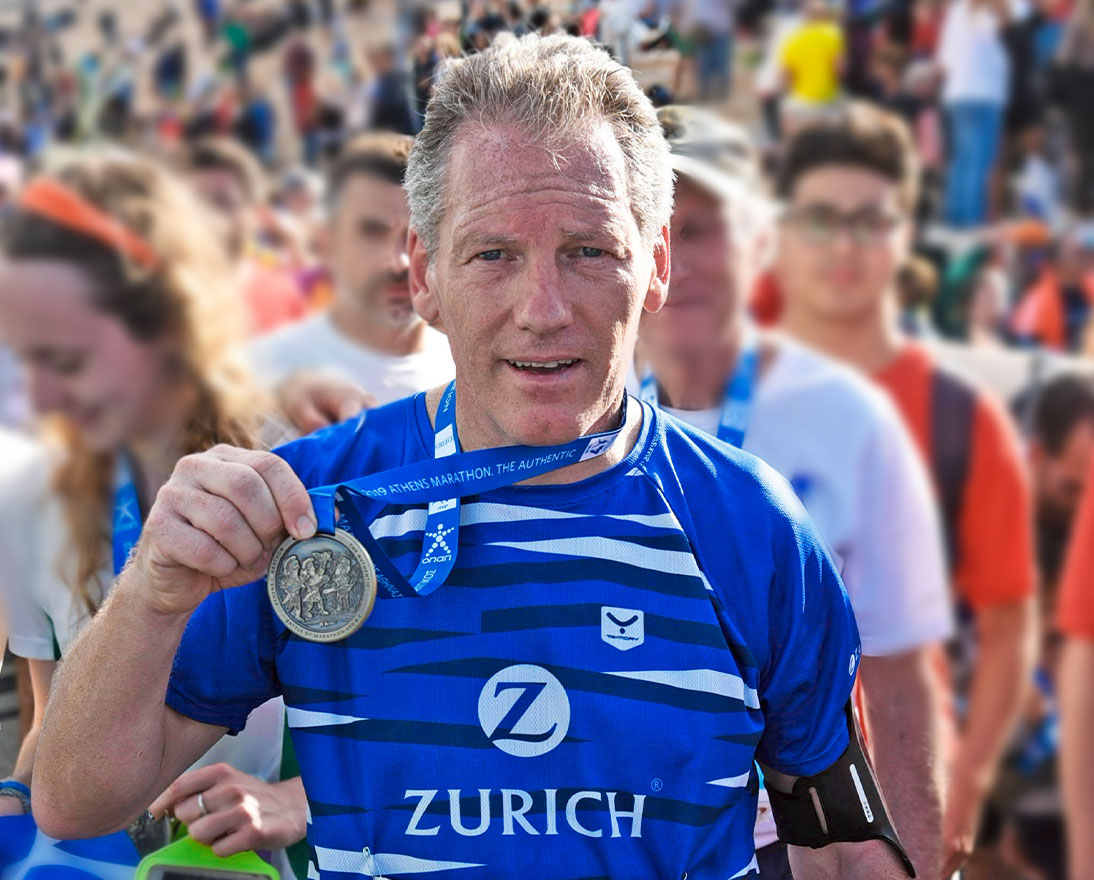Praying for a ‘last seen’ notification
PeopleArticleApril 27, 2022
During a 12-year exchange program, Zurich employee María Rodríguez built a strong relationship with a Ukrainian boy called Maksym. The boy is now a man defending his homeland in Ukraine. His wife and children are now safe with María’s family in Spain but concerns for Maksym remain.
On February 25, María Rodríguez’s family received a call from a young Ukrainian soldier. Maksym had known María’s family since he was a young boy. He was part of an exchange program that gave children from the region near Chernobyl – site of one of the world’s worst nuclear disasters – an opportunity to spend their summers in Catalonia, Spain.
Maksym spent 12 summers at the family beach house in Girona, learned to speak both Spanish and Catalan, and was considered part of the family. He even attended María’s wedding and other family occasions – María is also godmother to Maksym’s youngest daughter.
But Maksym had an important request. As a former soldier, he was required to defend his homeland from Russian invasion. He asked if María’s family would take his wife and two young children away from their home to the north of Kyiv to safety in Catalonia.
“The next day my brother-in-law and two nephews took a car and traveled to Poland to fetch his family,” says María. The return journey of over 3,100 miles (5,000 km) was not straightforward. It included breakdowns and difficulties finding Maksym’s family at the Polish/Ukrainian border, but eventually they were taken to Catalonia. And just in time too. Maksym’s hometown witnessed fierce fighting and was soon captured by Russian forces.
Maksym’s family is staying at the home of María’s brother-in-law. His wife is a teacher, and her school is providing educational support to the two children, who are even learning some Catalan phrases.
“I’d like to think that if the roles were reversed, a family in Ukraine would keep my kids safe,” says María.
Like the rest of her extended family, María regularly messages Maksym and has video calls with him over WhatsApp. “When you think of war like you see in the movies, you never imagine that you can be chatting with a soldier where there are bombs landing around him,” she says.
Maksym was even able to virtually join the birthday party of Maria’s son – where his two children were also enjoying themselves. “When I went to bed that night I had mixed feelings. While I’m cutting the cake with his children at my home, half an hour earlier he was shooting his gun. We don’t have a clear idea of war and how he is suffering.”
But what started as a heartwarming story that was covered in the local media, including TV and radio interviews, is now becoming more worrying for all involved.
Maksym is stationed on the frontline in the eastern Ukrainian region of Donbas. This has now become the focal point of Russia’s invasion and fighting is expected to intensify in the weeks ahead.
“At the beginning, Maksym was saying ‘we are going to win, and we will spend the summer in Girona’,” says María. “But this has changed. When you look him in the eye you can see that he is really worried. He has already spent a week in hospital after suffering concussion from an explosion. He is very tired and only sleeps a couple of hours a night.
“You don’t know what to say. You want to be optimistic. I really want to think he will come back. He was planning to relocate to Barcelona to work for an IT company this summer.”
Maksym’s wife is also struggling and María says her mental health is deteriorating. Not only is she worried about Maksym, but her mother also chose to stay in Ukraine. The situation is made more challenging as she can only speak Ukrainian and requires a translation tool to communicate.
“She is so sad and angry too,” says María. “Only two months ago they were living like us. And now their lives are so very different. She rarely speaks and has still not unpacked her bags. If it wasn’t for her children, she would have stayed in Ukraine.”
María is also very worried. Sixteen years older than Maksym, she has watched him grow from a boy into a man. “When I think of Maksym, I still see him as a child. I think of his tenderness with my children. And now I see him in a soldier’s uniform holding a gun. He has lost his innocence,” she says.
“Maksym said to me, ‘María, if you receive a Ukrainian call and it’s not me, then you know’.” María is one of Maksym’s emergency contacts. But María has her own way of knowing if Maksym is safe.
“I always go on to WhatsApp to check his ‘last seen’ notification. It’s proof that he’s still alive.”
Note: To protect Maksym’s identity his face has been pixelated, we do not use his surname nor mention the names of his wife and children or the location of his hometown.



